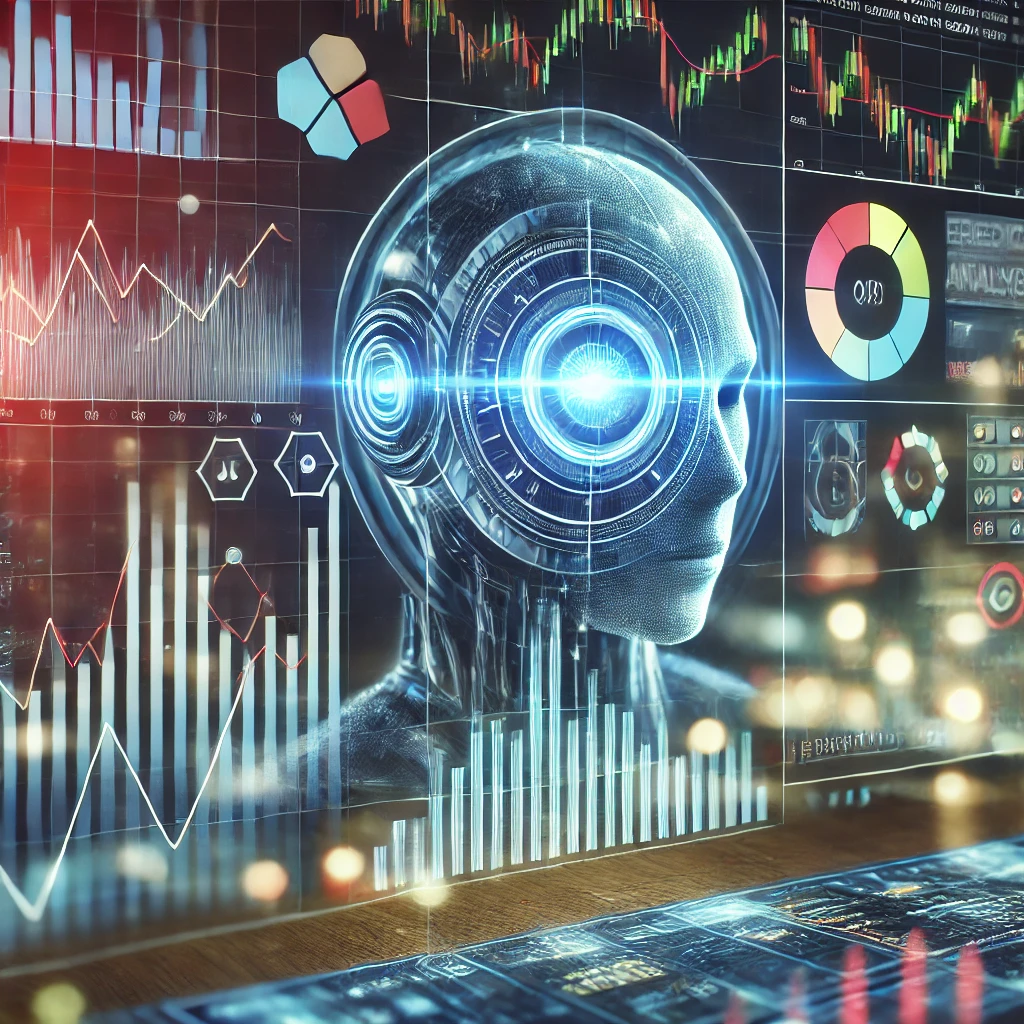Introduction: How AI is Revolutionizing Financial Forecasting
magine a world where financial predictions are more accurate, risks are minimized, and businesses make data-driven decisions with confidence. That world is here, thanks to AI Financial Forecasting! 📊 By leveraging artificial intelligence, companies can analyze vast amounts of financial data with speed and precision. AI Financial Forecasting is transforming how businesses predict trends, optimize investments, and manage financial risks. But how exactly does it work, and why should businesses and investors care? Let’s dive in!
How AI Enhances Financial Forecasting
Traditional financial forecasting relied on historical data, statistical models, and human intuition. While effective to some extent, these methods often struggled with large datasets, unpredictable markets, and evolving consumer behaviors. AI, on the other hand, processes massive amounts of data in real time, identifying trends and patterns that humans might miss. Here’s how:
✅ Machine Learning – AI-driven models continuously refine their predictions by analyzing past financial data. These systems adapt over time, improving accuracy and efficiency.
✅ Big Data’s Role – With the power of AI, vast datasets are processed to detect financial patterns. This helps businesses make informed decisions and anticipate market trends.
✅ Real-Time Insights – AI seamlessly integrates with financial management platforms, providing instant market updates. By analyzing real-time data, it enhances decision-making and risk assessment.
💡 Read about machine learning in finance.
The Top Benefits of AI in Financial Forecasting
1. How AI Financial Forecasting Enhances Precision & Efficiency
Say goodbye to guesswork! AI-powered predictive models minimize human errors and deliver highly accurate forecasts. Plus, AI automates tedious tasks, freeing up valuable time for finance professionals.
2.AI Financial Forecasting for Risk Management & Fraud Detection
AI is a game-changer in identifying financial anomalies and fraud. By analyzing historical transaction data, AI detects suspicious activities before they become major threats. It also assesses credit risk more effectively than traditional models.
3. Smarter Market & Business Insights
Want to know where the stock market is heading? AI-driven models provide real-time investment analysis, helping businesses and investors optimize their financial strategies.
📌 Discover AI applications in financial markets.
Real-World AI Applications in Financial Forecasting
📊 Stock Market & Investment Analysis
AI analyzes historical stock prices, market sentiment, and economic indicators to predict price movements. Many traders already use AI-driven algorithms to maximize their investments.

💰 Corporate Financial Planning
Companies use AI to optimize budgeting, expense tracking, and revenue projections. AI-driven analytics help businesses cut costs and allocate resources more efficiently.
🏦 Banking & Credit Risk Assessment
Banks and lending institutions rely on AI to analyze borrowers’ financial behavior, reducing biases in loan approvals and improving credit risk assessment.
🌍 AI in Economic Forecasting
AI plays a crucial role in predicting economic indicators like inflation, GDP growth, and unemployment trends, helping policymakers make informed decisions.
Challenges of AI Financial Forecasting & Ethical Concerns
1. Data Privacy & Security
AI deals with vast amounts of sensitive financial data, raising concerns about data privacy and cybersecurity. Strong regulations and safeguards are crucial.
2. Over-Reliance on AI
AI is powerful, but it’s not foolproof. Over-reliance on AI without human oversight can lead to misinterpretations and financial risks.
3. Regulatory & Compliance Challenges
Governments and financial regulators need to establish clear guidelines for AI in finance to ensure fairness, transparency, and ethical AI use.
The Future of AI in Financial Forecasting
The future is bright! AI advancements in quantum computing, deep learning, and natural language processing will further revolutionize financial forecasting. AI-driven decision-making will become smarter, faster, and more intuitive. Businesses and investors who embrace AI will gain a competitive edge in an increasingly digital world.
❓ Frequently Asked Questions (FAQs)
1.How AI Financial Forecasting is Changing the Game ?
AI improves financial forecasting by analyzing vast amounts of data, identifying patterns, and making real-time predictions. This reduces errors and enhances decision-making accuracy.
2. What industries benefit the most from AI in financial forecasting?
Industries such as banking, investment management, corporate finance, insurance, and retail benefit from AI-driven financial forecasting.
3. Can AI completely replace human financial analysts?
While AI enhances efficiency and accuracy, human expertise remains essential for strategic decision-making, ethical considerations, and interpreting complex financial scenarios.
4. What are the risks of using AI in financial forecasting?
Key risks include data privacy concerns, over-reliance on AI models, potential biases in AI algorithms, and regulatory challenges.
5. How can businesses integrate AI into their financial strategies?
Businesses can integrate AI by investing in AI-powered financial tools, training their teams in AI analytics, and using AI for predictive modeling, budgeting, and risk management.
Conclusion: AI is the Future of Financial Forecasting
AI is reshaping financial forecasting, enhancing accuracy, reducing risks, and optimizing financial planning. Whether you’re a business owner, investor, or finance professional, integrating AI into decision-making processes can drive smarter, data-backed strategies.
Are you ready to embrace the power of AI in financial forecasting? 🚀


